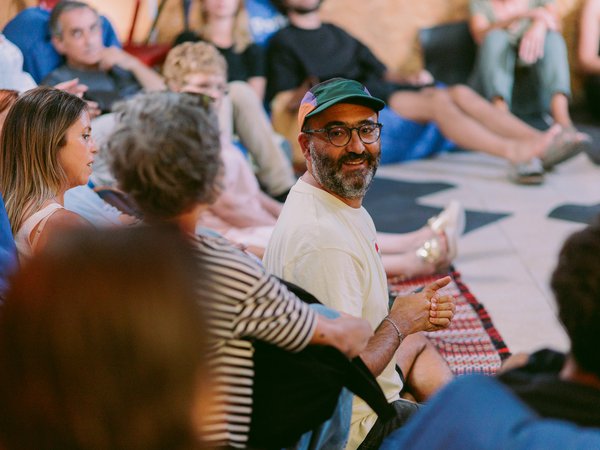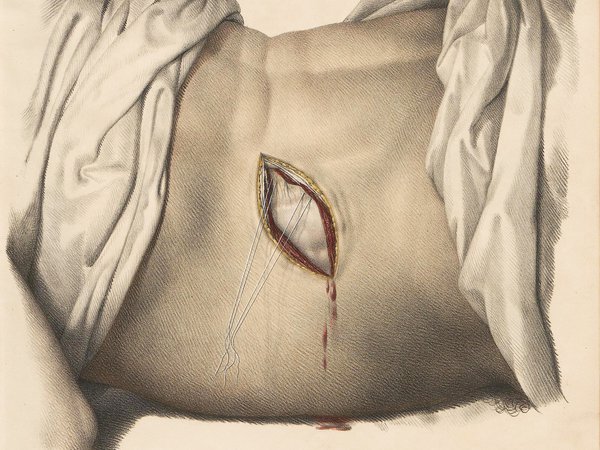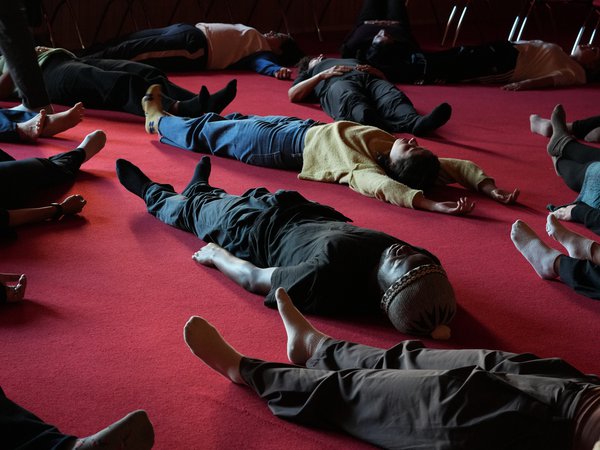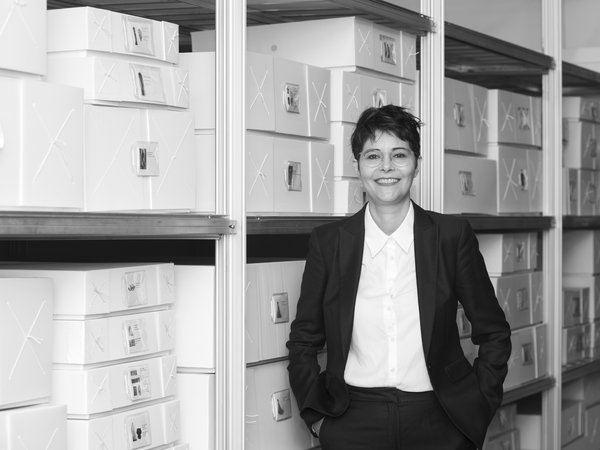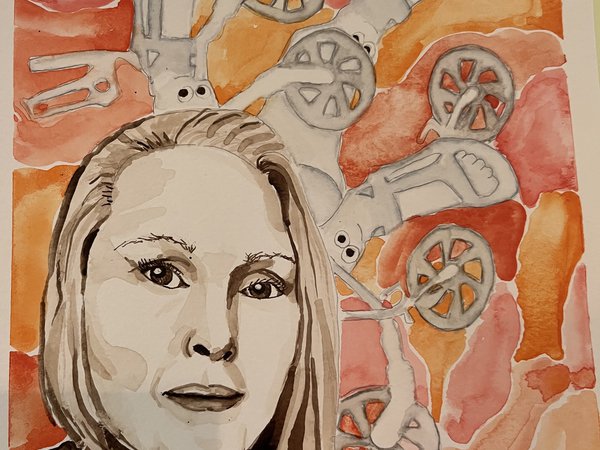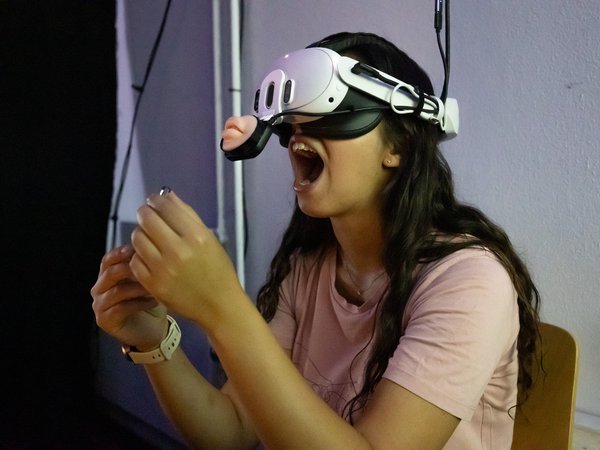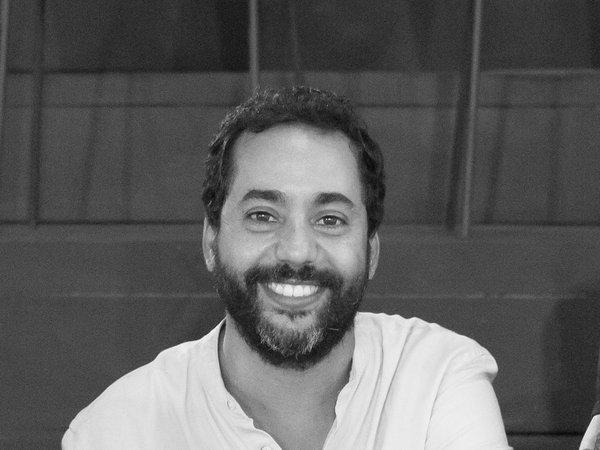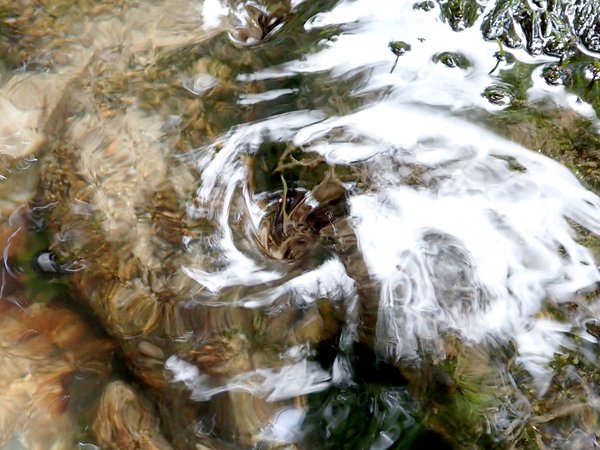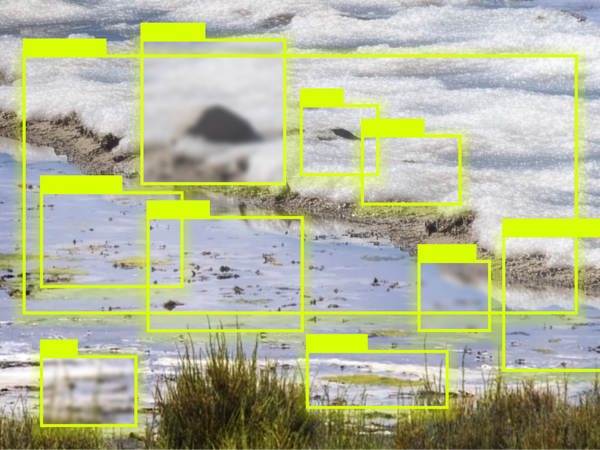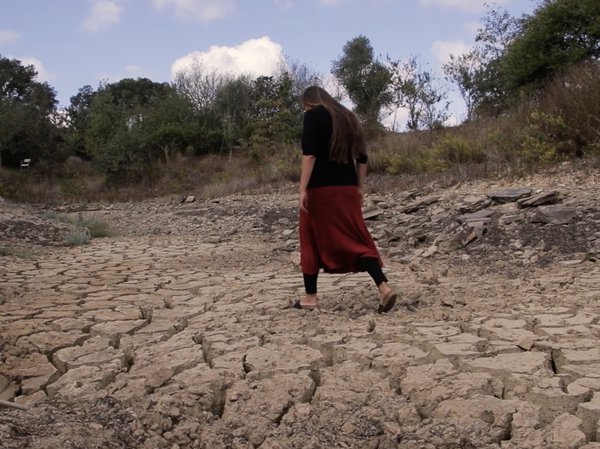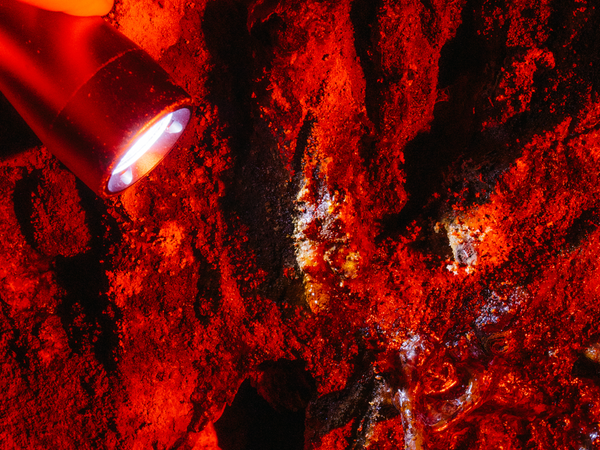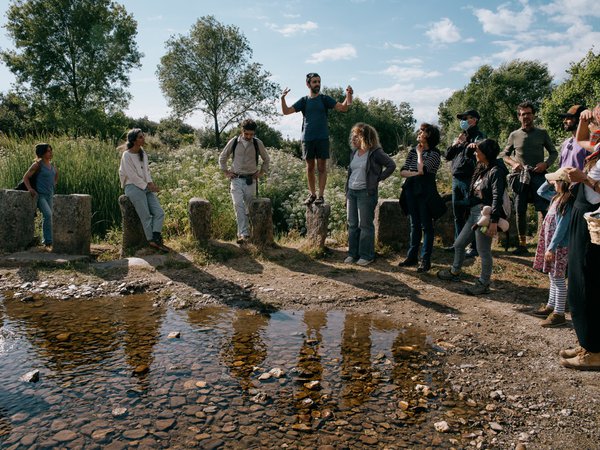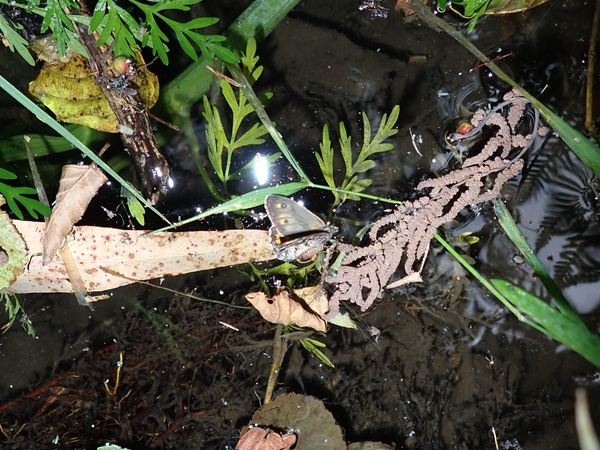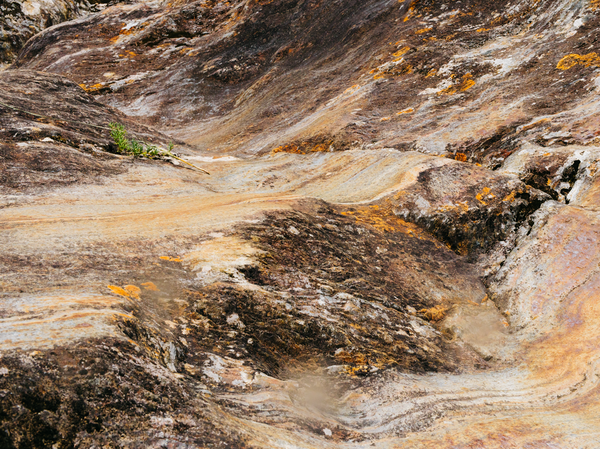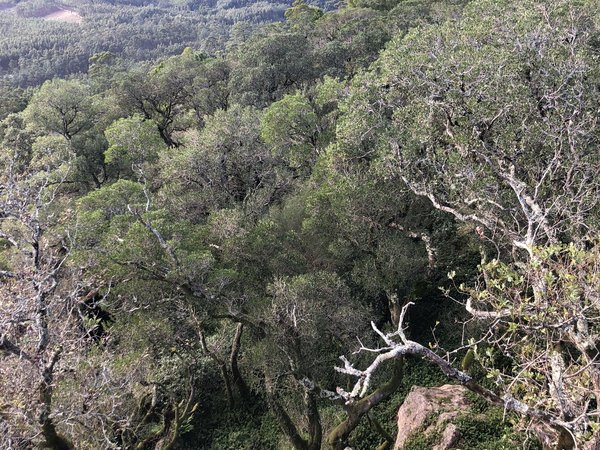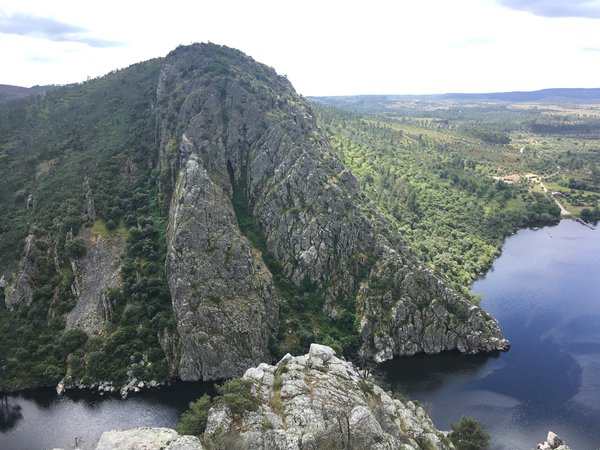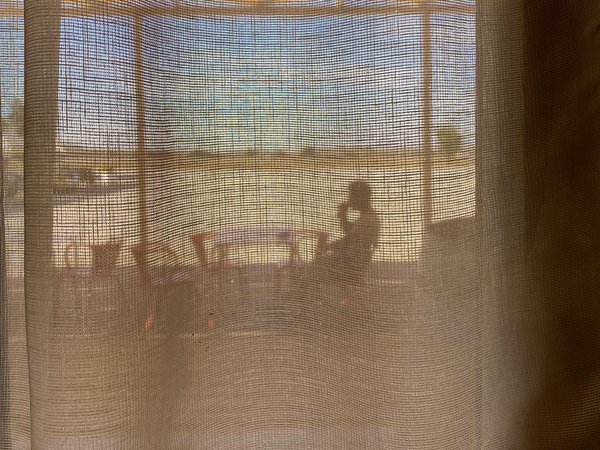This is a past event.
Câmera-Corpo
Câmera-Corpo
Curated by: Júnia Torres, Daniel Ribeiro Duarte
This series presents a set of films made in different ethnic, social, geographic, and racial contexts, which establish a productive dialogue with the most relevant issues of our time and where an important diversity of perspectives materialises.
Associated with the theatrical release of the new film by João Salaviza and Renée Nader Messora, A Flor do Buriti, which portrays the struggle undertaken by the Krahô indigenous community for land and the different forms of resistance implemented by the community, Forumdoc.bh - Festival do Filme Documentário e Etnográfico brings us some of the most recent indigenous audiovisual productions in Brazil.
This exhibition was created in partnership with forumdoc.bh - Belo Horizonte Documentary & Ethnographic Film Festival, which has as one of its priorities programming, presenting, and reflecting on the filmography produced by directors from different indigenous communities currently living in Brazil.
PROGRAMME
4 APR
4:00pm-6:00pm
Mãri hi – The Dream Tree, by Morzaniel Ɨramari, 2023, 17min
Thuë pihi kuuwi – A Woman Thinking, by Aida Harika Yanomami, Edmar Tokorino Yanomami and Roseane Yariana Yanomami, 2023, 9min
Yuri u xëaKma thë – Fishing with Timbó, by Aida Harika Yanomami, Edmar Tokorino Yanomami and Roseane Yariana Yanomami, 2023, 10min
Kaapora – The Call From the Woods, by Olinda Yawar Tupinambá, 2020, 20min
6:30pm – 9:30pm
Yvy Pyte - The Heart of the Earth, by Alberto Alvares, José Guilherme Cury, 2023, 111min
Conversation with Alberto Alvares, Rodrigo Lacerda
5 APR
4:00pm – 6:00pm
This Land is Our Land!, by Isael Maxakali, Sueli Maxakali, Carolina Canguçu, Roberto Romero, 2020, 70min
Conversation with Carolina Santara, Liliana Coutinho
6:30pm – 9:00pm
Ketwajê, by Mentuwajê Guardiões da Cultura (Krahô) and Coletivo Beture (Mebêngôkre-Kayapó), 2023, 77min - Short dialogues in Krahô without subtitles
Cupē Te Mē Iquêtjê Jipej Catêjê - White Man Massacred My Krahô People, by Hýjnõ Krahô and Felipe Kometani Melo, 2023, 41min
Conversation with Renée Nader Messora, João Salaviza
04 APR 2024
THU 16:00, 18:30
05 APR 2024
FRI 16:00, 18:30
4€
Desconto de 25% para pessoas até aos 30 anos, maiores de 65 anos e com deficiência e acompanhante.
Duration 2h
M/12 (with exceptions in the program)
Films with portuguese subtitles
Full Programme
4 APR
4:00pm – 6:00pm
Mãri hi / The Dream Tree
2023 | 17min | Amazonas, Roraima/Brazil
When the flowers of the Mãri tree bloom, dreams arise. The words of a great shaman lead to a dreamlike experience through the synergy between cinema and Yanomami dreams, presenting poetics and teachings from the people of the forest.
Direction: Morzaniel Ɨramari
With: Davi Kopenawa Yanomami
Direction of Photography and Camera: Morzaniel Ɨramari
Production: Aruac Filmes
Coproduction: Hutukara Associação Yanomami
Thuë Pihi Kuuwi / A Women Thinking
2023 | 9min | Brazil/Amazonas, Roraima/Brazil
A Yanomami woman watches a shaman while preparing Yãkoana - the food of the spirits. Based on the narrative of a young indigenous woman, Yãkoana, who feeds the Xapiri and allows shamans to enter the world of spirits, also proposes a gathering of perspectives and imaginations.
Direction: Aida Harika Yanomami, Edmar Tokorino Yanomami, Roseane Yariana Yanomami
Photography: Roseane Yariana Yanomami
Editors: Aida Harika Yanomami, Edmar Tokorino Yanomami, Carlos Eduardo Ceccon, Julia Faraco e Rodrigo Ribeiro-Andrade
Sound: Marcos Lopes da Silva
Production: Aruac Filmes
Yuri U Xëatima Thë / Fishing with Timbó
2023 | 10min | Amazonas, Roraima/Brazil
Two young Yanomami filmmakers describe the process of fishing with timbó - the vine traditionally used to stun fish. The meeting of voices and perspectives suggests the re-enchantment of images as a way of telling stories.
Direction: Aida Harika Yanomami, Edmar Tokorino Yanomami, Roseane Yariana Yanomami
Photography: Roseane Yariana Yanomami
Editors: Aida Harika Yanomami, Edmar Tokorino Yanomami, Carlos Eduardo Ceccon, Julia Faraco, Rodrigo Ribeiro-Andrade
Sound: Marcos Lopes da Silva
Production: Aruac Filmes
Kaapora / The Call of the Woods
2020 | 20min | Brazil, Bahia
A narrative about the connection of indigenous people between the Earth and their spirituality, from the point of view of Tupinambá director, Olinda Yawar, who develops environmental recovery projects on her people's lands. With the indigenous worldview as a lens, Kaapora and other spiritual characters are the central line of this film's narrative and argument.
Direction: Olinda Muniz, Silva Wanderley
Photography: Samuel Wanderley
Editors: Samuel Wanderley, Olinda Wandeley
Cast: Olinda Wanderley, Maria Rita Muniz
Production and script: Olinda Muniz, Silva Wanderley
6:30pm – 9:30pm
Yvy Pyte / Heart of the Earth
2023 | 110min | Brazil/Paraguai
This feature-length documentary was born from the desire of Guarani filmmaker Alberto Alvares (Tupã Ra'y). Historically, several borders were imposed on Guarani territory, causing serious changes. Encounters, displacements, new and old borders permeate the stories of this film, capable of taking us to the sacred territory "Yvy Pyte", from where the world emerged for the Guarani people, the Heart of the Earth.
Session presented by Alberto Alvares and Rodrigo Lacerda
Direction: Alberto Alvares, José Cury
Photography: Alberto Alvares, Bernard Machado, José Cury
Editor: Iris Oliveira
Sound: Bruno Vasconcelos
Production: Paula Kimo
5 APR
4:00pm – 6:00pm
Nūhū Yãg Mū Yõg Hãm / This Land is Our Land!
2020 | 70min | Brazil/Minas Gerais
In the past, white people didn't exist and we lived hunting with our Yãmĩyxop spirits. But the white people came, cut down the forests, dried up the rivers, and drove the animals away. Today, our long trees are gone, the white people have surrounded us, and our land is tiny. But our Yãmĩyxop are very strong and have taught us the stories and songs of the ancients who walked here.
DocLisboa Awards 2021: Fundação INATEL Award for Best Film on a Theme Associated with Cultural Practices and Traditions and the Intangible Heritage of Humanity; Sheffield Doc Fest - United Kingdom - Main Prize; Forumdoc.bh.2021
Direction: Isael Maxakali, Sueli Maxakali, Carolina Canguçu, Roberto Romero
Photography: Isael Maxakali, Carolina Canguçu, Jacinto Maxakali, Alexandre Maxakali, Sueli Maxakali, Roberto Romero
Editors: Carolina Canguçu, Roberto Romero
Production: Paula Berbert
Conversation with Carolina Santara and Liliana Coutinho
18:30 – 21:00
Ketwajê
2023 | 77min | Brazil, Tocantins
Short dialogues in Krahô without subtitles
The Mentuwajê Guardians of Culture (a group of young Krahô filmmakers) invite the Beture Collective (Mebêngôkre-Kayapó) to visit their village and attend the Kêtwajê festival – an important initiation ritual that has not happened for ten years. For several days, children and teenagers go through various trials to transform into warrior adults, under the watchful eye shared by local filmmakers and Mebêngôkre-Kayapó guests.
Direction: Mentuwajê Guardiões da Cultura (Krahô), Coletivo Beture (Mebêngôkre-Kayapó)
Photography, sound: Bianca Toc Krahô, Gustavo Xôhtýc Krahô, Henrique Ihjãc Krahô, Ismael Cawàr Krahô, Kadjatnhoro Kayapo, Mário Catàm, Krahô, Pat-i Kayapo, Rodolfo Hacrô Krahô, Roseni Hacrý Krahô, Soleane Pãj Krahô
Editors: Pat-i Kayapo, Rodolfo Hacrô Krahô
Production: Mentuwajê Guardiões da Cultura, Coletivo Beture, Simone Giovine, Renée Nader Messora, João Salaviza
Cupē Te Mē Iquêtjê Jipej Catêjê / White Man Massacred My Krahô People
2023 | 41min | Brazil, Tocantins
Zacarias Ropkà escaped the brutal massacre suffered by the Krahô in 1940, when farmers in the region joined together to attack several villages with their groups of armed peasants. In just one day, dozens of people were savagely murdered, mainly women and children. Seventy years later, Ropká shares with younger people the horrors he witnessed and what he did to survive.
Direction: Francisco Hỳjnõ Krahô, Felipe Kometani Melo
Photography: Francisco Hỳjnõ Krahô, Felipe Kometani Melo
Sound: Francisco Hỳjnõ Krahô, Felipe Kometani Melo
Production: Francisco Hỳjnõ Krahô, Felipe Kometani Melo
Session Presented by Renée Nader Messora, João Salaviza
Biografias
Alberto Alvares
É um cineasta indígena da etnia Guarani Nhandewa, nascido na aldeia Porto Lindo, Mato Grosso do Sul. É também professor e tradutor de Guarani, realizador, argumentista e montador da Nhamandu Produções. Fez a licenciatura Intercultural para Educadores Indígenas, pela Faculdade de Educação da Universidade Federal de Minas Gerais, e o mestrado no programa de Pós-Graduação em Cinema de Audiovisual na Universidade Federal Fluminense – PPGCINE. Foi professor de audiovisual na formação de cineastas indígenas em Biguaçu, Santa Catarina (2013), em Paranhos, Mato Grosso do Sul (2014) e no projeto da Série para Televisão Amanajé o Mensageiro do Futuro (2016), Inventar com a Diferença/UFF (2017/2018) e projeto Lentes Guarani, na aldeia Tekoa Ka’aguy Porã, no Estado de Espírito (2020). Em 2016 e 2017, participou em duas edições do encontro Mekukradjá promovido pelo Itaú Cultural (SP). Em 2018, ministrou uma oficina de fotografia no Instituto Moreira Salles (IMS). Em 2019, realizou o filme O Último Sonho (60’) que foi exibido no encontro Mekukradjá. Participou do Festival Doclisboa, e na 21ª Bienal de Arte Contemporânea SESC - VideoBrasil. Em 2020, foi diretor de fotografia do documentário Mulheres Mbya: Território, Jaraguá SP, e dirigiu o documentário Ayvu Ypy – Origem da Língua, na aldeia Rio Silveira SP.
Carolina Santara
Advogada e Indigenista. Doutora em Direito pela UnB. Pesquisadora Visitante na Universidade de Lisboa. Assessora do Opi - Observatório dos Direitos Humanos dos Povos Indígenas Isolados e de Recente Contato, Diretora Jurídica do Instituto AmazoniAlerta. Membro do Grupo de Trabalho “Direitos indígenas: acesso à justiça e singularidades processuais” do Conselho Nacional de Justiça e Membro da Comissão de Promoção de Participação Indígena no Processo Eleitoral do Tribunal Superior Eleitoral.
Rodrigo Lacerda
É antropólogo e realizador. Doutorado em Antropologia: Políticas e Práticas da Cultura e Museologia pela NOVA FCSH e ISCTE-IUL e mestre em Antropologia - especialização Culturas Visuais -, pela NOVA FCSH. É investigador no Centro em Rede de Investigação em Antropologia (CRIA), onde é coordenador do grupo de investigação Práticas e Políticas da Cultura, e no IN2PAST - Laboratório Associado para a Investigação e Inovação em Património, Artes, Sustentabilidade e Território. Coordena o projeto europeu EDGES: Entangling Indigenous Knowledges in Universities e é professor auxiliar convidado na NOVA FCSH, desde 2017. Em 2019, co-organizou a Mostra Ameríndia – Caminhos do Cinema Indígena no Brasil, que trouxe a Portugal o curador e pensador indígena Ailton Krenak e vários cineastas e artistas indígenas. As suas áreas de investigação são antropologia visual, cinema indígena, etnologia indígena e património.
Support

Curadoria
forumdoc.bh - Júnia Torres e Daniel Ribeiro Duarte
Organização
Culturgest e Escola das Artes - CITAR / Universidade Católica Portuguesa








